Reports

Completely new doctoral study programmes for restorers, conservators and technologists will be offered by the University of Pardubice (UPCE) and the University of Chemical Technology (VŠCHT) in cooperation with the Czech Technical University in Prague. The Faculty of Restoration of UPCE, which is based in Litomyšl, and the Faculty of Chemical Technology of VŠCHT in Prague will for the first time this year accept graduates who will continue their education in the doctoral programme Conservation Sciences in the Care of Tangible Cultural Heritage.
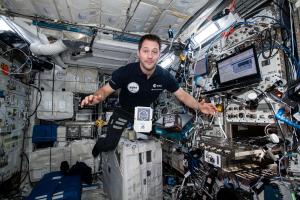
The launch of SpaceX's Dragon spacecraft, which flew from Cape Canaveral, Florida, to the International Space Station (ISS) on 29 August, was watched with excitement by Czech scientists and students. Among them was Jaroslav Hrubý, who graduated from the Faculty of Biomedical Engineering of the Czech Technical University and is now working at the University of Hasselt in Belgium. The ship had on board a diamond quantum magnetometer, which he participated in the development of.

The Czech Technical University in Prague has slightly strengthened its position in the group of 1000 universities in the latest edition of the World University Rankings for 2022, published by the British company Times Higher Education. Despite the increasing number of universities ranked. A total of 19 Czech universities appear in the rankings.
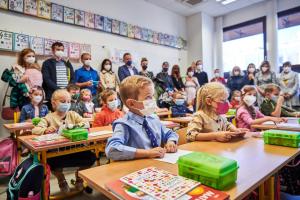
2021/09/02
On 1 September 2021, The University Elementary School Lvíčata (Lion cubs) opened its new facilities with the start of the school year. The opening ceremony was attended by the Rector of CTU doc. Vojtěch Petráček and the Chancellor and Chairwoman of the Founder's Council Ing. Lucie Orgoníková. The Rector then welcomed all sixteen first graders and their parents in their class.

2021/09/01
In a series of videos called "Engineering and Truly Intelligent Future", which was created at the Czech Institute of Informatics, Robotics and Cybernetics of the Czech Technical University (CIIRC CTU), a diverse world of contemporary science is presented to the general and professional public through micro-stories. Our ambassadors, established scientific capacities together with promising students present their research and projects from many fields - from the theory of automatic control and general artificial intelligence to drones flying in flocks.
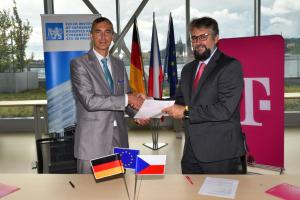
T-Mobile is significantly expanding its cooperation with the Czech Institute of Informatics, Robotics and Cybernetics (CIIRC) of CTU, bringing a strong international dimension. The Deutsche Telekom parent group has selected the CIIRC CTU as its partner centre for applied research on Industry 4.0. The signing of the memorandum took place today on the occasion of the visit of German President Frank-Walter Steinmeier to CIIRC CTU.
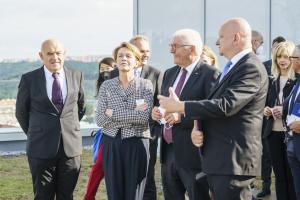
On Friday morning, as part of his state visit to the Czech Republic, German Federal President Frank-Walter Steinmeier and his wife visited the RICAIP International Research Centre at the Czech Institute of Informatics, Robotics and Cybernetics at the Czech Technical University in Prague (CIIRC CTU). The centre is the result of long-term Czech-German scientific cooperation in the field of Industry 4.0. President Steinmeier met representatives of the academic and industrial sectors who participate in the research and development of modern technologies for industry. He got acquainted with the latest experiments focused on robotics and artificial intelligence.
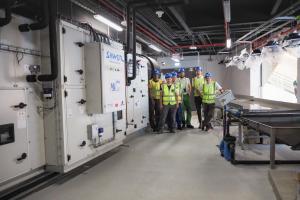
The team of the University Center for Energy Efficient Buildings of the Czech Technical University put into operation the S.A.W.E.R. installed in the Czech national pavilion at the EXPO 2020 exhibition center. The process of its technical integration and launch was completed a month before the opening of the world exhibition gates to the public.
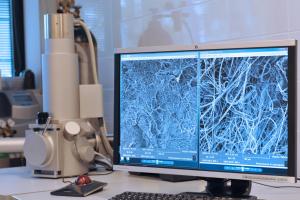
In its laboratories, the University Centre for Energy Efficient Buildings of CTU (UCEEB) has tested the possibilities of using nanofibres to detect small foreign particles in gas, such as viruses or bacteria in human breath. The tests were commissioned by ProNanoTech, which will use the findings to develop a new product.
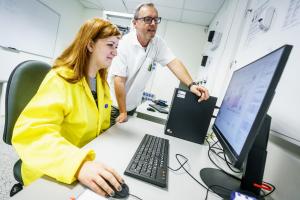
To prepare experts in the safety and security of nuclear facilities in all its aspects is the main goal of the new doctoral programme of the Faculty of Nuclear Sciences and Physical Engineering (FJFI). It was created by the Department of Nuclear Reactors (KJR) i n cooperation with the Department of Dosimetry and Application of Ionizing Radiation (KDAIZ), the Department of Nuclear Chemistry (KJCH) and the Department of Information Security of the Faculty of Information Technology (FIT). One of the main characteristics of the programme is a strong emphasis on experimental teaching in the field of security of nuclear facilities and nuclear materials, but also on forensic analysis of nuclear materials.